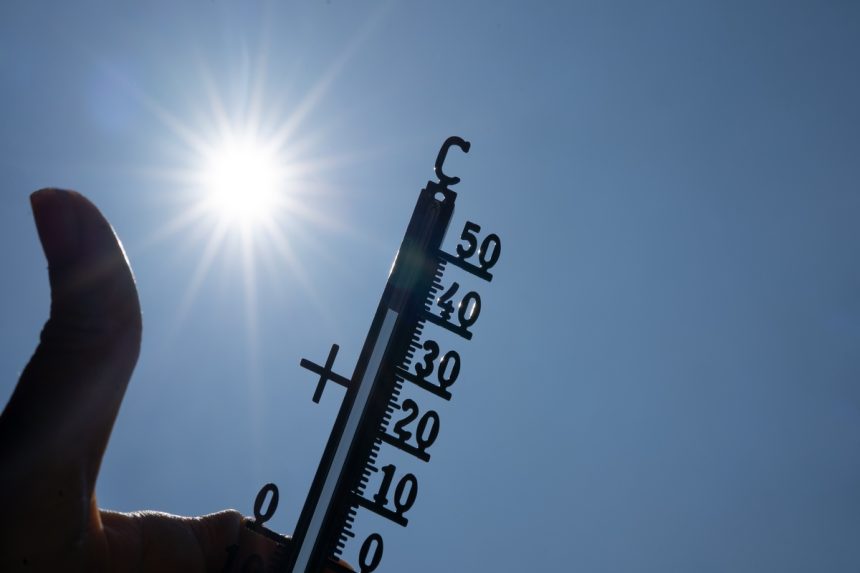Europe is facing a climate emergency as wildfires rage and temperatures soar past 40°C (104°F) across multiple countries. From Portugal to Turkey, millions are experiencing deadly heatwaves, prompting mass evacuations, red alerts, and an urgent reassessment of climate realities. “Europe is warming faster than any other continent,” warned the EU’s Copernicus Climate Change Service. The crisis has already claimed lives, destroyed forests, and disrupted tourism — and it’s not over yet.
An Unforgiving Climate: Europe’s Alarming Warming Trend
The EU’s Copernicus Climate Change Service states, “Europe is warming faster than any other continent, at twice the speed of the global average since the 1980s.” Last year marked the hottest ever on record in Europe and globally. This warming is no longer a prediction but a lived experience, with the current heatwave being a stark reminder.
Scientists directly link this trend to climate change, which is driven by the burning of fossil fuels like coal, oil, and gasoline. These fuels emit greenhouse gases that trap heat, increasing the frequency and intensity of heat waves and droughts. The result? Europe’s landscape is increasingly vulnerable to wildfires.
Spain and Portugal: Tragedy in the Flames
In Spain, firefighters battled multiple fires across Castile and Leon, Castile-La Mancha, Andalusia, and Galicia. One man tragically died after suffering burns on 98% of his body in a blaze near Madrid. Thousands were evacuated from homes and hotels, including beachgoers in southern Spain, although some were allowed to return by Tuesday afternoon.
Meanwhile, more than 700 firefighters in Portugal fought a major fire in Trancoso, 217 miles northeast of Lisbon. Several smaller fires were also active further north, keeping emergency services on high alert.
Turkey: Fires Force Sea Evacuations
A rapidly spreading fire in Canakkale, Turkey, evacuated 2,000 residents — some of whom fled by boat as flames moved from farmlands to residential zones. “We’ve largely brought the fire under control,” stated Agriculture and Forestry Minister Ibrahim Yumakli, though efforts continued in Manisa and Izmir provinces.
The blaze also forced authorities to suspend maritime traffic and left 77 people hospitalized due to smoke inhalation, highlighting the fire’s severe impact on both public health and infrastructure.
France: Red Alert as Temperatures Climb
Southern France faced its second consecutive day under a red heat alert, with temperatures surpassing 40°C (104°F). Meteo France warned that the heat would extend northeast toward the Paris region. Some municipalities responded by offering free or reduced access to public pools.
Forest fire risks also remain dangerously high across central and southern regions. A deadly fire in Aude last week is reportedly under control, but officials warned it could take weeks to fully extinguish due to persistent hot spots.
Greece: Infernos Near Cities and Resorts
Seven major wildfires in Greece prompted widespread evacuations and destroyed homes and businesses. Flames reached the outskirts of Patras, the country’s third-largest city. Emergency responders rushed to prevent the fire from spreading into an industrial zone.
Island resorts on Zakynthos and Kefalonia faced the threat of evacuation as high winds hampered firefighting efforts. Fires also blazed on the mainland and the island of Chios. Nationwide, civil protection services sent out over 20 mobile alerts with evacuation instructions.
Britain: Heatwave Hits the South
In the U.K., temperatures neared 34°C (93°F), especially in southern England and London. The Meteorological Office defines a heatwave as temperatures exceeding 25°C (77°F) for most regions — and 28°C (82.4°F) in London — for three or more days.
While Britain has not yet seen wildfires on the scale of southern Europe, the rising temperatures are causing public health concerns and renewed focus on climate preparedness.
A Continental Call to Action
Europe’s current heatwave and wildfires are not isolated incidents but symptoms of a broader, intensifying climate crisis. As Chancellor Friedrich Merz of Germany once said in a different context, “This is not the time to wait. This is the time to act.” With record heat, tragic losses, and widespread disruption, Europe must accelerate efforts to adapt, mitigate, and transition to a more sustainable future — before the next heatwave strikes.






